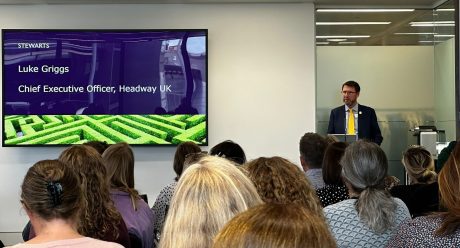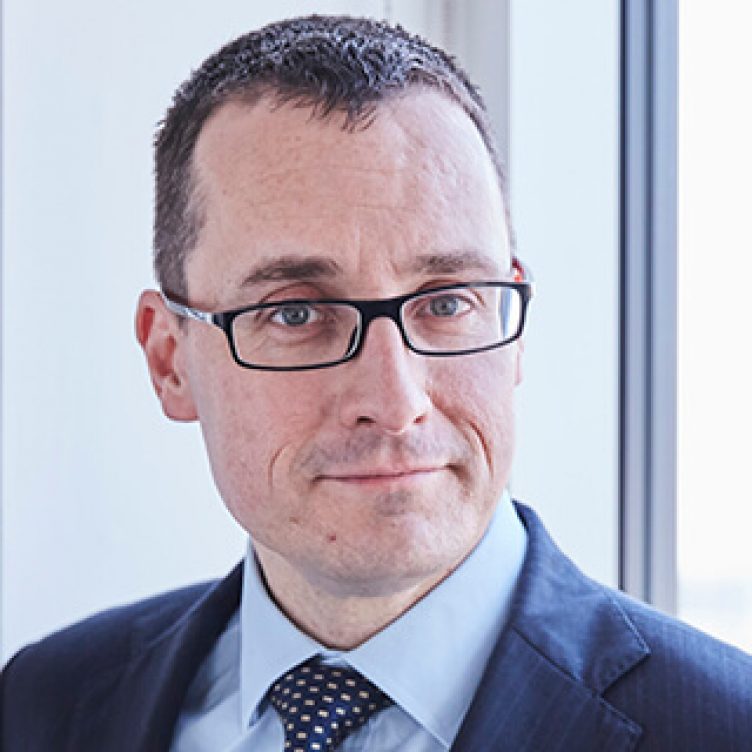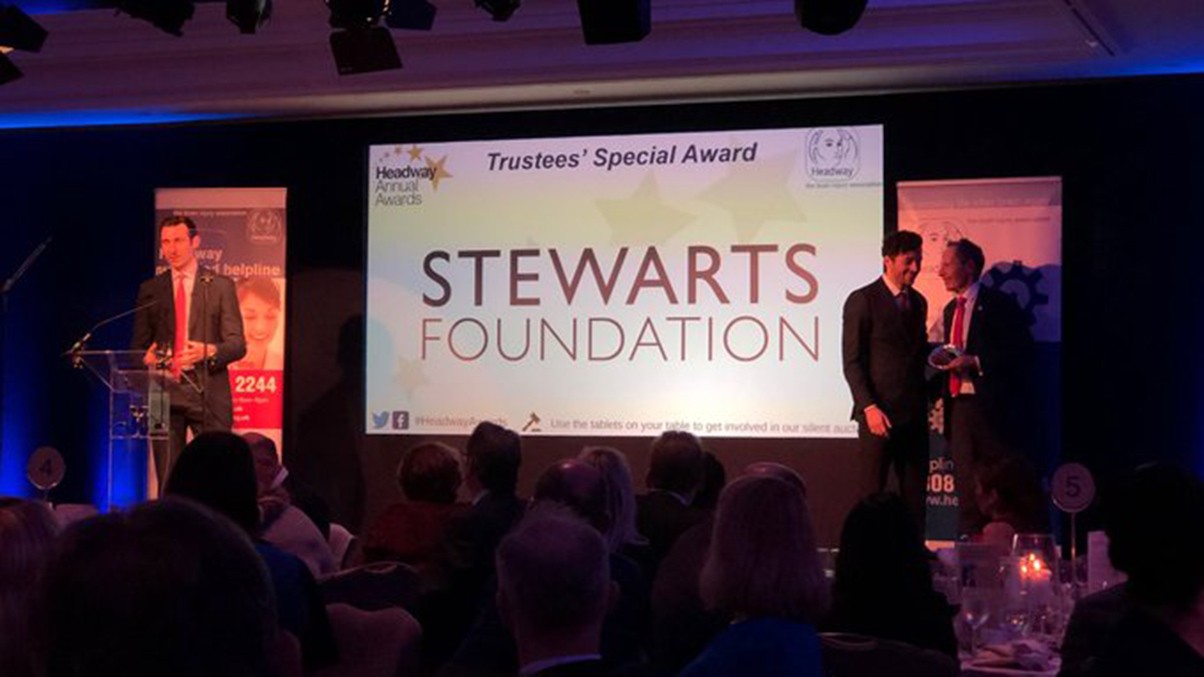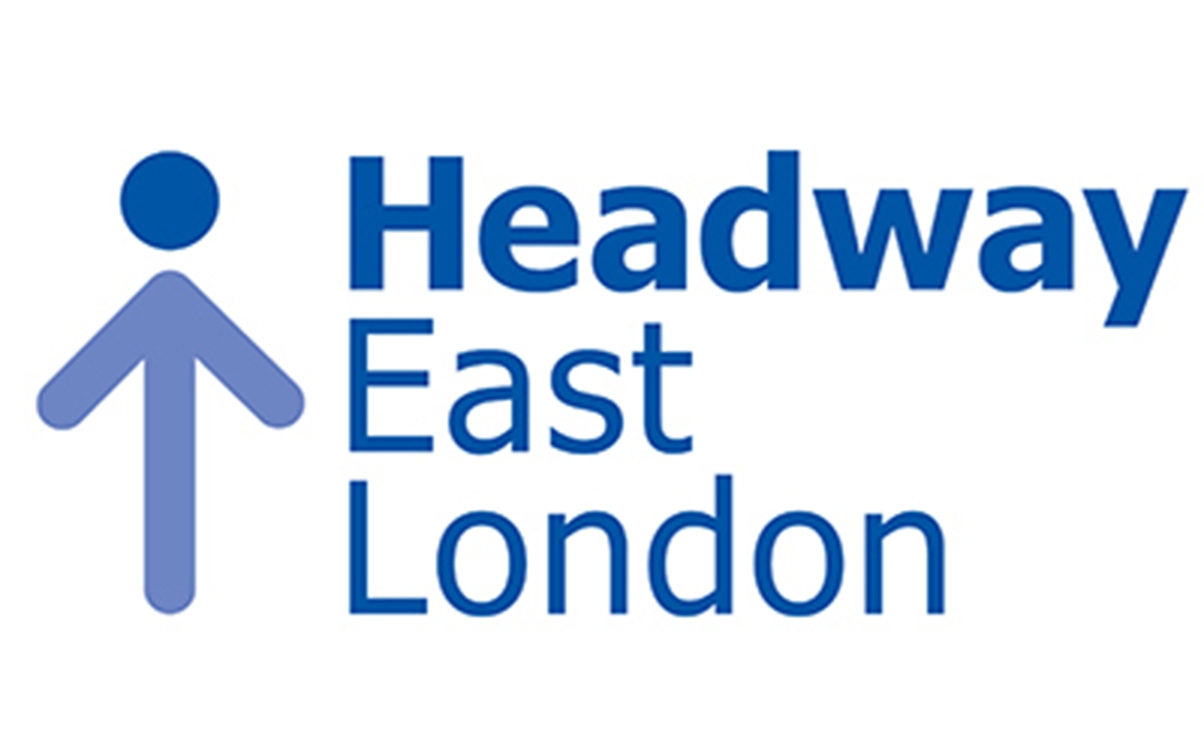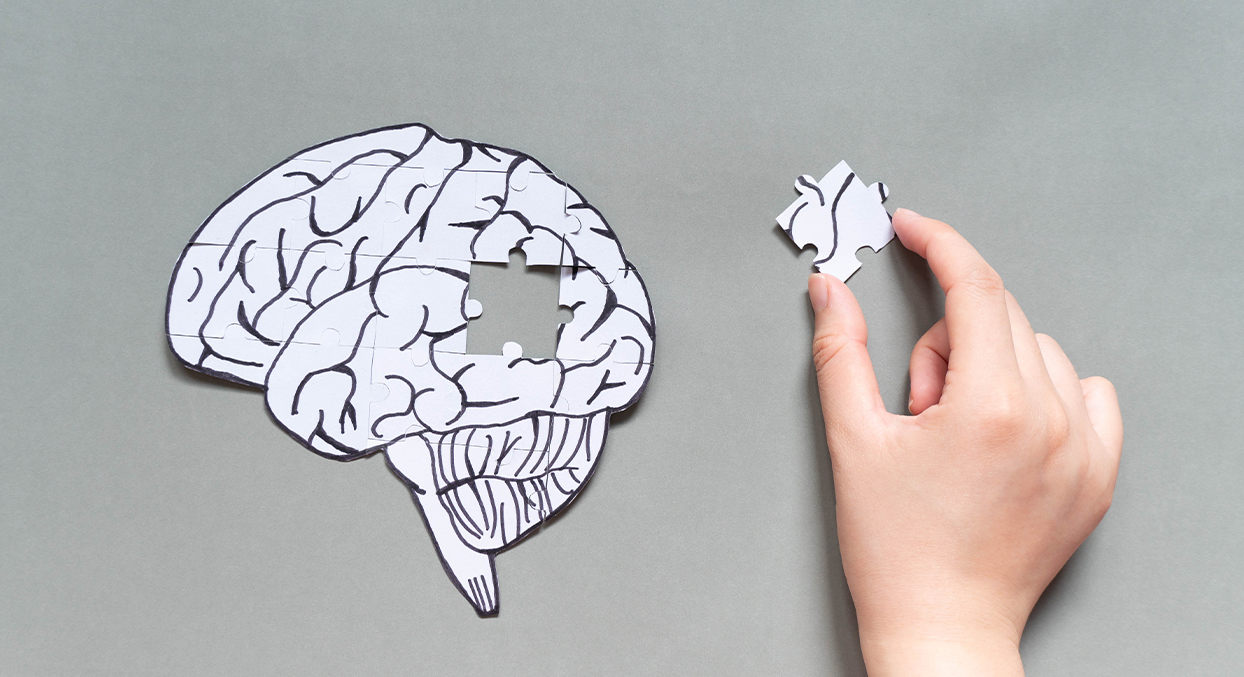On Thursday 3 October 2024 we hosted the inaugural Stewarts Brain Injury Conference, fundraising for the Headway Emergency Fund.
The theme of this year’s conference was ‘Navigating Complexity: Tackling Challenging Behaviour in Brain Injury Rehabilitation’. Attendees enjoyed a series of talks from experts including:
- Professor Diane Playford (neurorehabilitation leader at the University of Warwick and Research Director at the Royal Hospital for Neurodisability);
- Dr Richard Irwin (Consultant Clinical Psychologist, Clinical Programme Lead for the Neuro-behavioural and the lead for Mental Capacity and Deprivation of Liberty Safeguards at the Royal Hospital for Neurodisability);
- Sandy Le Blanc (occupational therapist and care expert at Somek); and
- Dr Quinton Deeley (consultant neuropsychiatrist at South London NHS Foundation Trust and Senior Lecturer at King’s College, London).
The talks were complemented by presentations from Gordon Montague and Krystal Ford, who both looked into the question of challenging behaviour in brain injury rehabilitation from the perspective of the family.
Views from the experts
Professor Diane Playford kickstarted the day with an introduction to challenging and chronic behaviour in inpatient settings, highlighting how these complex environments can be confusing and overwhelming to staff, patients and families alike. She offered a fresh perspective on conceptualising care and support for brain injury survivors by using the systems-thinking framework ‘CATWOE’ (Customer, Actor, Transformation, Worldview, Owner, and Environment), providing a great insight into how to support brain injury survivors and improve the rehabilitation process.
Attendees were treated to a fascinating talk by Dr Richard Irwin. Drawing on his extensive experience to consider a multi-disciplinary team (MDT) approach to complex, chronic and challenging behaviour in inpatient settings, he dissected the importance of understanding and personalisation in improving patient outcomes. This requires those involved in care taking time to understand patients and their behaviour, decoding the message each patient is communicating and proactively meeting their needs. Dr Irwin also emphasised the importance of staff culture, empowerment, self-determination and communication in allowing MDTs to understand and manage challenging behaviour.
Picking up where Dr Irwin left off, Sandy Le Blanc talked the audience through the difficult transition from inpatient to community rehabilitation and methods for managing common issues. She explained that a key feature of success lies in empowering brain injury survivors by listening to and validating them, having compassion, and enabling positive risk taking.
The day was wrapped up by Dr Quinton Deeley. Centring his talk on debilitating cognitive symptoms which can appear following a comparatively mild traumatic brain injury (TBI), Dr Deeley noted that it is vital to differentiate between ‘organic’ and ‘functional’ diagnoses. Such a distinction allows physicians to diagnose and treat patients experiencing severe functional neurological symptoms after mild TBI more effectively as it validates patients’ symptoms rather than stigmatising them.
The Headway Emergency Fund
Headway is a UK charity that supports adults with a brain injury, offering vital support and information services for those affected and their families. Their Emergency Fund gives one-off small grants to help brain injury survivors cope with the practical implications of living with their injury. Since the fund was launched, Headway has supported thousands of families and provided grants of more than half a million pounds.
The Stewarts Foundation has supported the Headway Emergency Fund since 2011.
We would like to thank our insightful speakers, and all those who attended the event for supporting this cause.
You can find further information regarding our expertise, experience and team on our Personal Injury and page.
If you require assistance from our team, please contact us.
Subscribe – In order to receive our news straight to your inbox, subscribe here. Our newsletters are sent no more than once a month.

